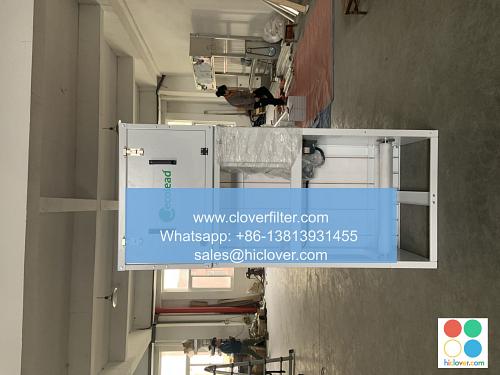The Benefits of Eco-Friendly Air Filters

As the world grapples with the challenges of climate change, air pollution, and environmental sustainability, the importance of eco-friendly air filters cannot be overstated. These innovative filters not only improve indoor air quality but also promote energy efficiency, reduce waste, and contribute to a healthier environment. In this article, we will explore the benefits of eco-friendly air filters and their applications in various areas, including residential, commercial, and industrial settings.
Improved Indoor Air Quality
Eco-friendly air filters are designed to capture pollutants, allergens, and microorganisms that can exacerbate respiratory problems and other health issues. By using high-efficiency particulate air (HEPA) filters or activated carbon filters, individuals can significantly improve the air quality in their homes, offices, and public spaces. This is especially important for people who suffer from asthma, allergies, or other respiratory conditions.
Energy Efficiency and Cost Savings
Eco-friendly air filters are not only good for the environment, but they can also help reduce energy consumption and lower energy bills. By using low-resistance filters that require less energy to push air through, individuals can enjoy cost savings while still maintaining good air quality. Additionally, smart air filtration systems can be integrated with building management systems (BMS) to optimize energy efficiency and reduce waste.
Sustainable Materials and Waste Reduction
Traditional air filters often contain non-biodegradable materials and harmful chemicals that can harm the environment. Eco-friendly air filters, on the other hand, are made from sustainable materials such as bamboo, cotton, and recycled fibers. These filters are biodegradable and can be composted at the end of their life cycle, reducing waste and minimizing their environmental footprint.
Applications in Various Industries
Eco-friendly air filters have a wide range of applications in various industries, including:
* Residential homes: Improve indoor air quality and reduce energy consumption in homes.
* Commercial buildings: Enhance air quality and energy efficiency in offices, schools, and hospitals.
* Industrial settings: Provide clean air and reduce pollution in manufacturing facilities, warehouses, and other industrial environments.
* Transportation: Use in vehicles, such as cars, buses, and trains, to improve air quality and reduce pollution.
* Healthcare: Provide clean air and reduce the risk of hospital-acquired infections (HAIs) in hospitals and healthcare facilities.
Conclusion
In conclusion, eco-friendly air filters offer a sustainable solution for improving indoor air quality, reducing energy consumption, and promoting environmental sustainability. With their wide range of applications in various industries, these filters have the potential to make a significant impact on our health, wellbeing, and the environment. As we continue to navigate the challenges of climate change and environmental degradation, the importance of eco-friendly air filters will only continue to grow. It looks like you didn’t include a prompt. Please go ahead and ask a question or provide a prompt, and I’ll do my best to help!

